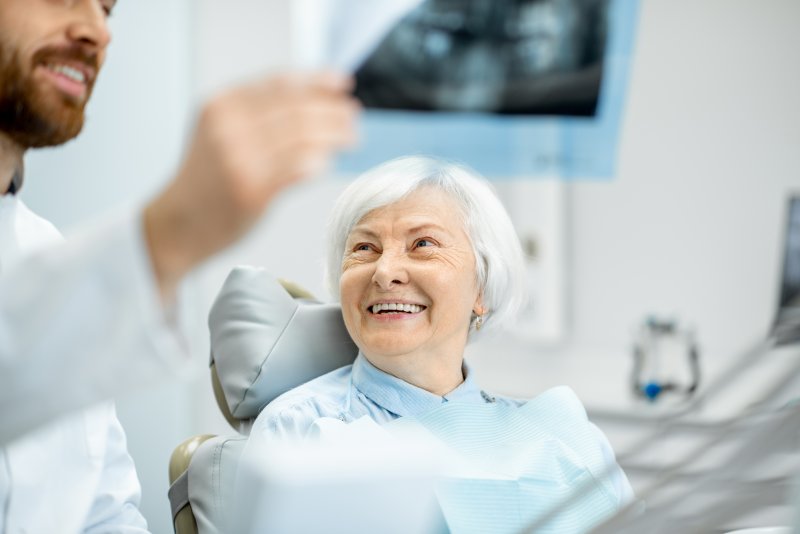
As the years go by, your body ages; your hair starts to grey, your skin starts to wrinkle, and you slowly but surely begin to lose that youthful look that you’ve worn your whole life. Of course, there are benefits to aging: visits from your grandchildren and a propensity for wisdom are two that come to mind. But one thing that can definitely spoil the good times are age-related dental issues, which become more common with each passing birthday. For seniors like yourself, here are some tips to care for your smile during your golden years.
How Does Aging Impact My Dental Health?
Aging affects every area of your body, and your mouth is no exception. Natural wear and tear occurs over time, which can cause your gums to recede and your teeth to become more vulnerable. Common problems that can develop include darkened teeth, dry mouth, gum disease, tooth decay, sensitive teeth, diminished taste, and in serious cases, oral cancer or other diseases.
Even though many of these issues can develop at earlier ages, the risk of things like tooth decay or gum disease is exponentially heightened with age. In fact, according to the CDC, roughly 34% of adults ages 65 and older have lost multiple (at least six or more) teeth to gum disease and tooth decay!
There are also indirect ways in which age can influence your oral health—certain conditions like arthritis in the hands can make brushing or flossing challenging to perform. Drugs and certain medications, including painkillers, decongestants, antidepressants, and many others can also have a negative influence on your oral health and cause some of the problems listed.
How Can I Preserve My Oral Health as I Age?
There are many things that you can do to preserve your oral health as you age, and a lot of them emphasize extra attention and unfaltering consistency. Keeping up with good hygiene habits, like brushing twice (for two minutes at a time) and flossing daily, is crucial for all ages but especially for seniors. If mobility when brushing is an issue, an electric toothbrush might be a solution. Rinsing daily with an antiseptic or antibacterial mouthwash is encouraged, too.
Scheduling regular visits to your dentist for cleaning and oral exams can help to prevent serious problems from going unnoticed. After reviewing your medical history, your dentist will be able to create a treatment plan that caters to your individual needs. Symptoms that you should monitor and inform your dentist about include loose or sensitive teeth, difficulty tasting, chewing, or swallowing, and any painful sores, lumps, bleeding, or swelling in your mouth.
Maintaining excellent dental hygiene isn’t something that gets easier with age, but it does become increasingly important as you get older. No matter how many candles are on your birthday cake this year, having good oral health is the key to a great-looking smile.
About the Author
Dr. David Fisher Jr. completed his DDS at the University of North Carolina at Chapel Hill and has been caring for patients in the Greensboro area for over 20 years. Dr. Fisher has extensive experience in various specialty fields including oral surgery, special care/geriatric dentistry, and sedation dentistry. If you have any questions about the article or for Dr. Fisher, he can be reached at his website or (336) 288-1242.

